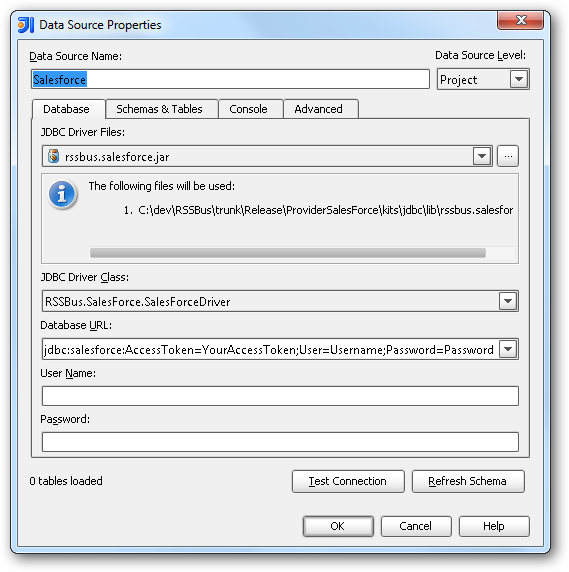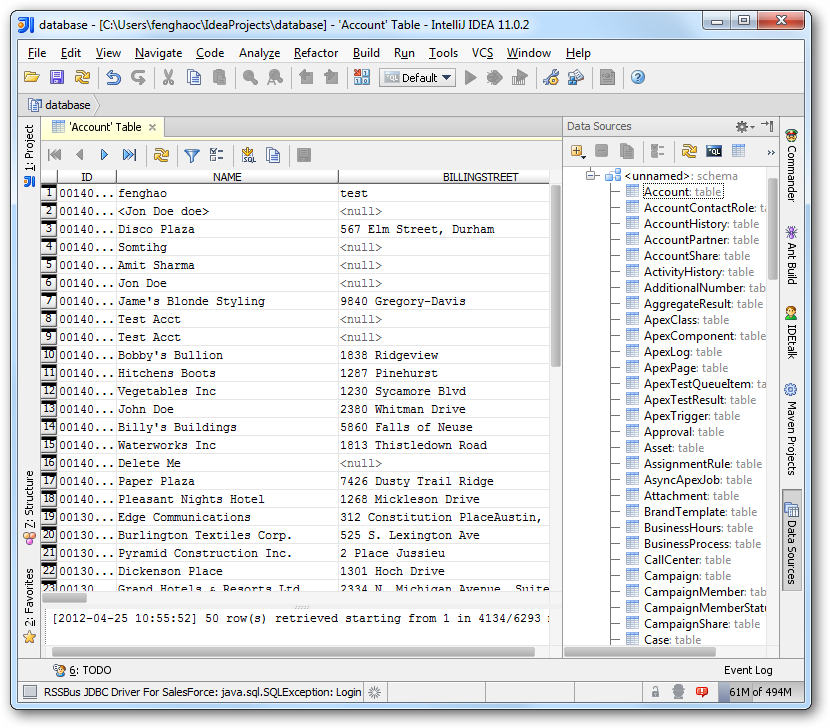Discover how a bimodal integration strategy can address the major data management challenges facing your organization today.
Get the Report →How to connect to Microsoft Exchange Data from IntelliJ
Integrate connectivity to Microsoft Exchange data with wizards in IntelliJ.
The CData JDBC Driver for Microsoft Exchange enables you to access Microsoft Exchange as a JDBC data source, providing integration with rapid development tools in IDEs. This article shows how to use the data source configuration wizard to connect to Microsoft Exchange data in IntelliJ.
Create a JBDC Data Source for Microsoft Exchange
Follow the steps below to add the driver JAR and define connection properties required to connect to Microsoft Exchange data.
- In the Data Sources window, right-click and then click Add Data Source -> DB Data Source.
In the Data Source Properties dialog that appears, the following properties are required:
- JDBC Driver Files: Click the button next to this menu to add the JDBC Driver file cdata.jdbc.exchange.jar, located in the installation directory.
- JDBC Driver Class: In this menu, select cdata.jdbc.exchange.ExchangeDriver from the list.
Database URL: Enter the connection URL in the JDBC URL property. The URL must start with jdbc:exchange: and includes connection properties separated with semicolons.
Specify the User and Password to connect to Exchange. Additionally, specify the address of the Exchange server you are connecting to and the Platform associated with the server.
Built-in Connection String Designer
For assistance in constructing the JDBC URL, use the connection string designer built into the Microsoft Exchange JDBC Driver. Either double-click the JAR file or execute the jar file from the command-line.
java -jar cdata.jdbc.exchange.jarFill in the connection properties and copy the connection string to the clipboard.
![Using the built-in connection string designer to generate a JDBC URL (Salesforce is shown.)]()
A typical JDBC URL is the following:
jdbc:exchange:User='myUser@mydomain.onmicrosoft.com';Password='myPassword';Server='https://outlook.office365.com/EWS/Exchange.asmx';Platform='Exchange_Online';

Edit and Save Microsoft Exchange Data
To discover schema information, right-click the data source you just created and click Refresh Tables. To query a table, right-click it and then click Open Tables Editor. You can also modify records in the Table Editor.








